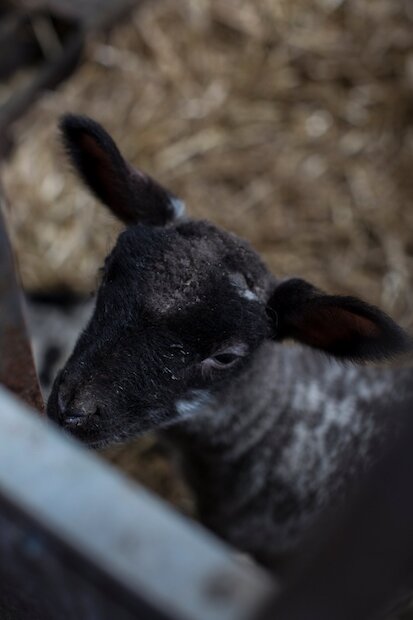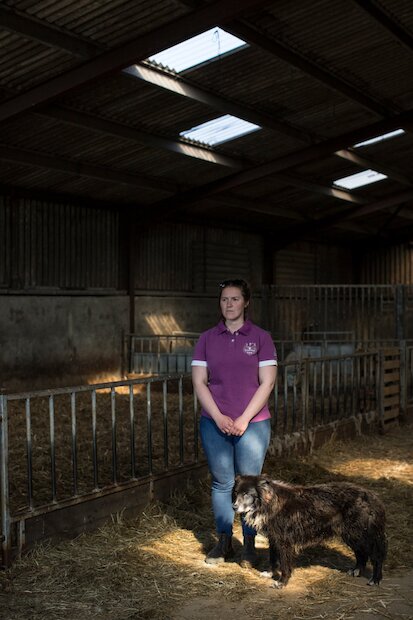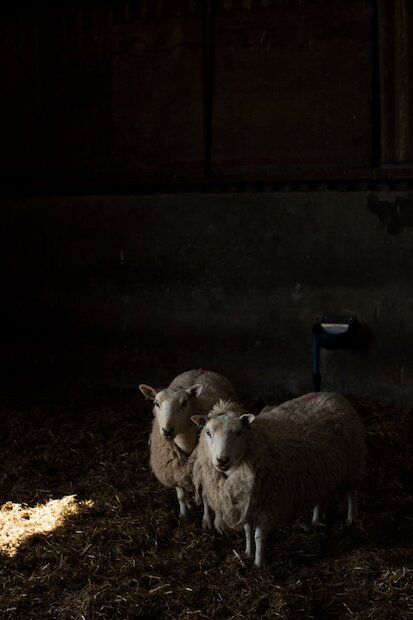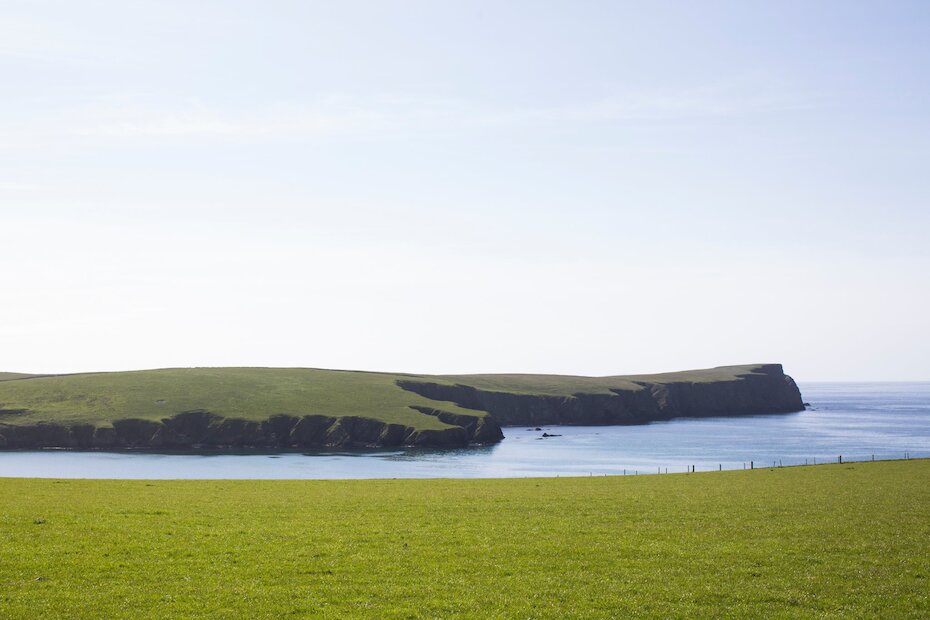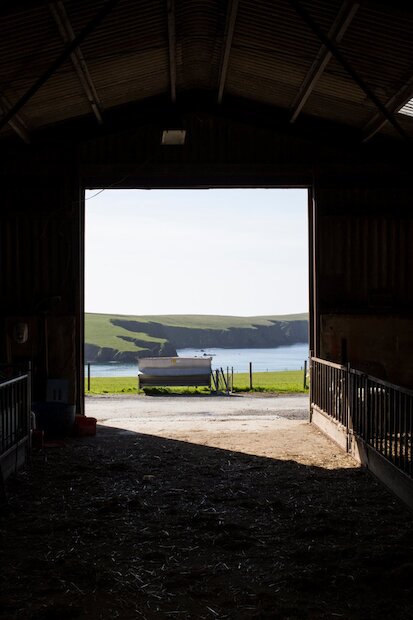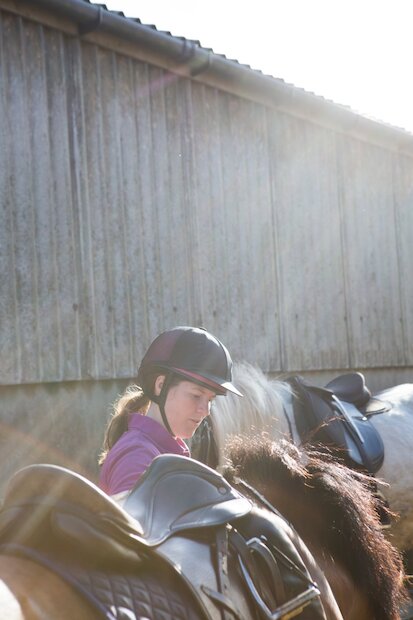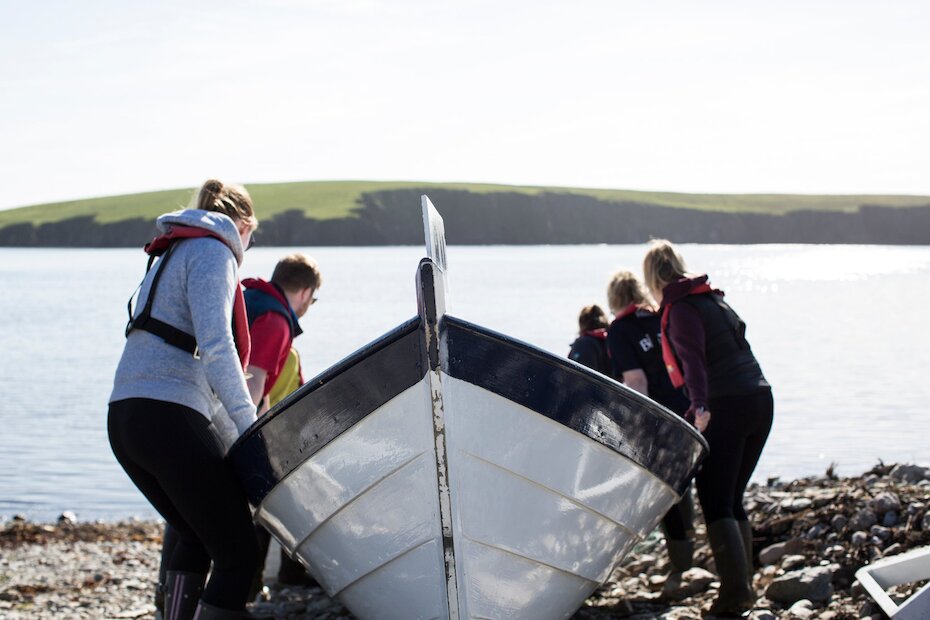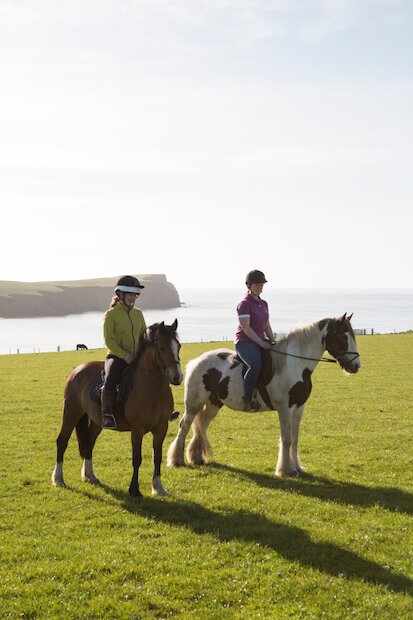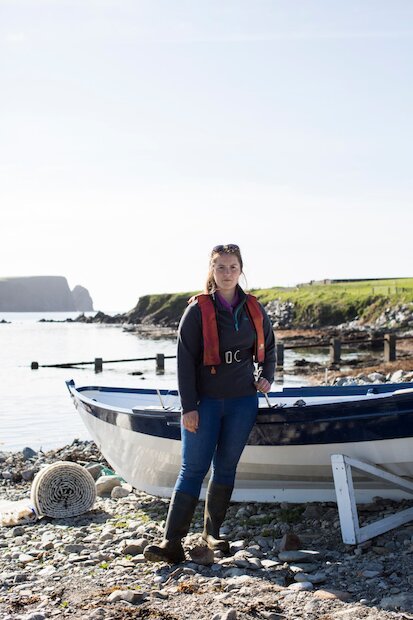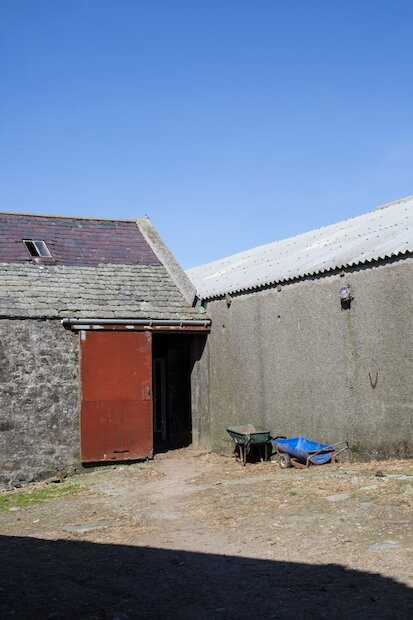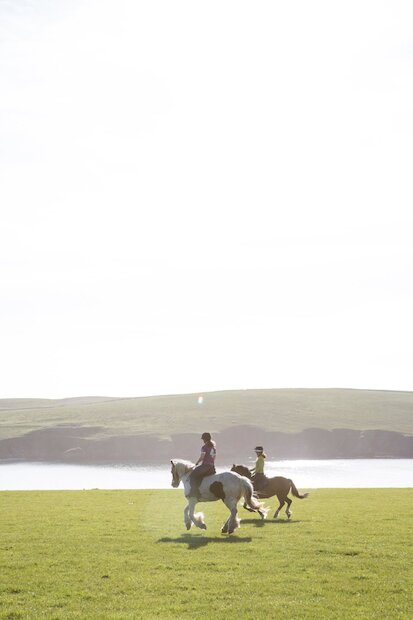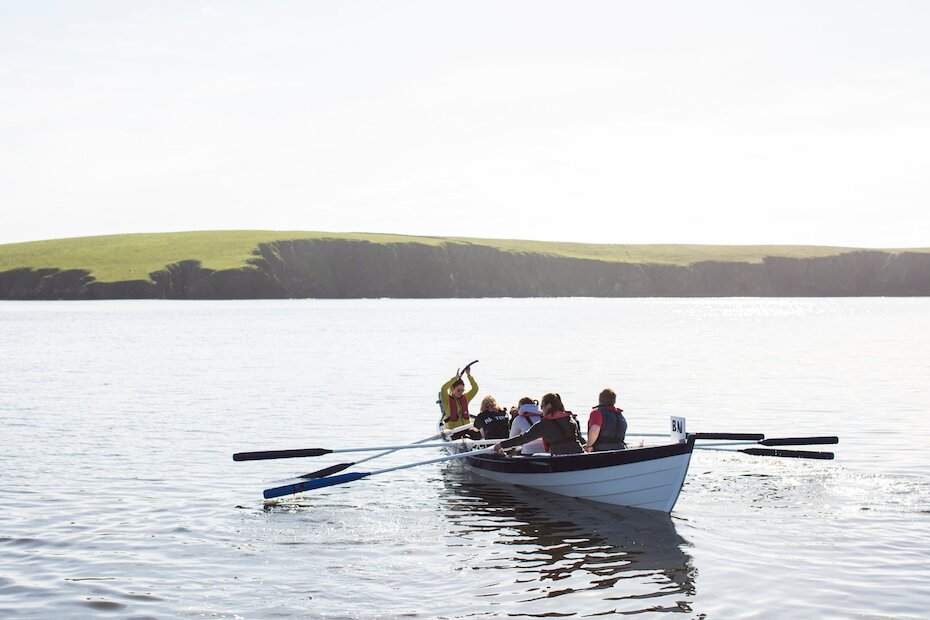NB: This piece was written in 2018, and details have changed.
There can’t be too many farms anywhere in the world with a view like the one from Bigton Farm, on the west coast of Shetland’s Mainland. The stone house looks out across a white-sand spit of sand to the beautiful, rolling St Ninian’s Isle, a place of puffins, poetry and 8th-Century buried treasure.
The 500-metre beach is Britain’s longest tombolo, or ayre in the Old Norse-derived local dialect. On a sunny late afternoon in May, with the sun shimmering on the blue sea, you could easily just sit and gaze at it, lost in a Wordsworthian reverie.
But for Kirsty Budge, the no-nonsense 25-year-old farmer here, there’s not much time to admire the view. “Everyone who comes is amazed by it,” she says. “But to us, it’s just what we look at from the kitchen window.”
More than that, though, Kirsty has a farm to run. Though she shares the job with her 21-year-old sister Aimee, Aimee is off in Aberdeen, in her final year studying agriculture—leaving Kirsty in charge of the 300-hectare farm, with its 265 ewes, 70 cows and 80 acres of barley crops. For most people this is more than a full-time job, but three days a week Kirsty also teaches children with autism at the Bell’s Brae Primary School in the capital, Lerwick.
Kirsty and Aimee weren’t meant to be running Bigton Farm so soon. But, in 2014, their 46-year-old father Bryden died in a tractor accident, leaving his three daughters both mourning and facing a life-changing decision regarding the farm, which had been in the family for more than 150 years. While Hannah, 23, decided to focus on a Master’s in geography and a career away from farming, Kirsty and Aimee decided that they would commit to running the family business, with help and advice from their mother Helen and grandfather Jim.
We’re the seventh generation working on the farm, and it felt like it would be an insult not to keep the farm going.
“We’re the seventh generation working on the farm, and it felt like it would be an insult not to keep the farm going,” says Kirsty, talking to us in the farm’s shed, lit by beams of sunlight, surrounded by vociferous sheep and with the odd interruption from Boris the irascible sheepdog, named after Boris Johnson (Boris the dog was born when Boris the politician was in the news for having an affair, which doesn’t really narrow it down). “So many people behind us have spent such a long time and worked so hard to make the farm what it is, especially dad.”
